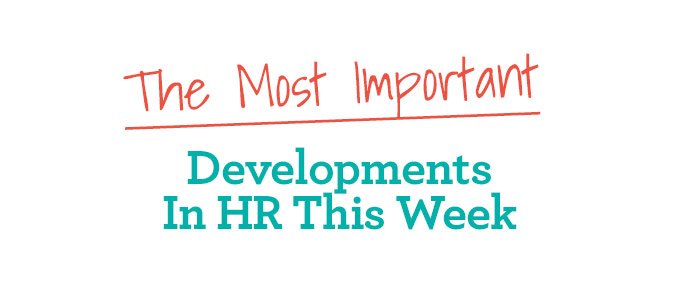
The horrific attack on the Tree of Life synagogue this week broke our hearts. That, along with pipe bombs mailed to Democratic leaders and everyday headlines of racial violence and unrest, illustrates the hatred — racial, religious, gender-based, and political — that seems to be growing in our increasingly polarized country at an alarming rate. People are reeling because of it, and since they spend the bulk of their time at work, it’s going to affect morale in the workplace. A recent study by Florida State University confirmed it. A workplace is a community, and communities come together in times like this. One way HR can help is to create a forum for employees to talk about how it’s affecting them. Volunteering as a staff, doing something good for someone, can also bolster morale. The Washington Post


Like politicians, CEOs live in fear of saying the wrong thing in public. Just ask Elon Musk, Mark Zuckerberg and Jamie Dimon, all of whom have had to apologize after very public gaffes hit the Twitterverse and went viral. And everyone knows the cautionary tale of Papa John. Even offhand remarks can take a chief exec down, as Tony Hayward, BP’s then-CEO, learned in 2010 after uttering just five words, “I want my life back,” after the Deepwater Horizon oil spill. It’s leading to the “terror of errors” syndrome, in which top execs are doing damage control even before they slip up. They’re increasingly creating public personas, like Sheryl Sandberg, or aligning with an ethical mission, like Paul Polman of Unilever. The safest thing to do to safeguard both the CEO’s career and the company’s brand might be for HR to institute a no-Twitter policy for high-profile top execs. The Economist


How accurate and up-to-date are your job descriptions? If you haven’t looked at them in a while, you might want to dust them off and ask employees if they reflect what they really do, day-to-day, on the job. This comes from the recent ruling by the 6th U.S. Circuit Court of Appeals in Gunter v. Bemis, a lawsuit an employee filed against his employer for violating the ADA when it fired him. In a nutshell, he was hurt on the job. The employer then fired him because he couldn’t perform an essential job function. Yes I could, said the employee, with a little help, which coworkers said was the norm in the department. Had that been in the job description, he wouldn’t have been fired. The court ruled with the employee. HR Dive


Just when you’re getting used to managing millennials, Gen Z is looming on the horizon. Who are these kids and how do they differ from their avocado-toast-eating, man-bun-wearing predecessors? Jonah Stillman can help you out with that. He recently wrote a book, Gen Z @ Work, that grew out of a research paper he wrote in high school. This kid is all of 19 years old. He studied his generation, did surveys of high school students and even studied global trends. He is now advising companies on how his generation will fit into the workplace. Clients include 3M, Deloitte, Fannie Mae, LinkedIn, Intuit and others. His findings are solid gold info for HR, especially recruiters. The basics: Gen Z is anyone born after 1997. They are digital natives who grew up in a post-9/11 world in the middle of a recession. Very different animals from the (some say) entitled millennials who preceded them. CNBC


When a salesperson is stuck in traffic, chances are he or she has sent a text or emailed a customer. Making business calls behind the wheel is commonplace. But doing so could set your company up for a lawsuit. As with most things legal, there are tangles, but generally, any time an employee is making a work-related call, text or email behind the wheel, whether it’s in his or her own vehicle, a company vehicle, during work hours or off hours, the employer could be liable for damages if the employee causes an accident because of distracted driving. What can HR do about it? Craft realistic policies about device use behind the wheel. Banning it altogether will ensure certain people will violate it. Hands-free only, or equipping everyone with headsets that sync to their phones, might be a good solution. SHRM


Just before hundreds of engineers at Google staged a walkout because of how the company has handled sexual harassment allegations against top execs (namely, quietly showing them the door with huge severance packages), Rich DeVaul, a director at Alphabet’s lab that comes up with futuristic projects, has left the company because of sexual harassment claims. He did not receive a payout, however. CEO Sundar Pichai apologized to employees, saying Google hasn’t done enough to assure workers it takes sexual harassment seriously and that he’s fully committed to making progress. He also expressed support for the walkout and made sure managers were aware. Bloomberg










